第79章 Chapter (4)
To the immortal honor of the ladies of South Carolina, they were much more whiggishly given than the men; insomuch that though married to tories, they would be whigs still.
These fair ladies, in consequence of their relation to the tories, could, at pleasure, pass into Charleston; which they never left without bringing off quantities of broad cloth cut and jumped into petticoats, and artfully hid under their gowns. The broad cloth, thus brought off, was for regimentals for our officers. -- Things went on swimmingly in this way for a long time, till Smith, getting one day more groggy and impudent than usual, swore that some young women who were going out at the gate, looked much bigger over the hips than they had need, and insisted on a search. The truth is, these fair patriots, preparing for a great wedding in the country, had thus spoiled their shape, and brought themselves to all this disgrace by their over greediness for finery. But Mr. tory Smith affected to be so enraged by this trick, which the girls had attempted to play on him, that he would never afterwards suffer a woman to pass without first pulling up her clothes.
He carried his zeal to such length, as one day very grossly to insult a genteel old lady, a Mrs. M'Corde.
Her son, who was a dragoon in Lee's legion, swore vengeance against Smith, and would, as we have seen, have taken his life, had not Gen. Marion interposed.
In the Charleston papers of that day, 1781, Smith gives the history of his escape from Marion, wherein he relates an anecdote, which, if it be true, and I see no reason to doubt it, shows clear enough that his toryism cost him dear.
In his confinement at Motte's house, he was excessively uneasy.
Well knowing that the whigs owed him no good will, and fearing that the next time they got a halter round his neck, he might find no Marion to take his part, he determined if possible to run off.
The tories were all handcuffed two and two, and confined together under a sentinel, in what was called a `bull-pen', made of pine trees, cut down so judgmatically as to form, by their fall, a pen or enclosure.
It was Smith's fortune to have for his yoke-fellow a poor sickly creature of a tory, who, though hardly able to go high-low, was prevailed on to desert with him. They had not travelled far into the woods, before his sick companion, quite overcome with fatigue, declared he could go no farther, and presently fell down in a swoon.
Confined by the handcuffs, Smith was obliged to lie by him in the woods, two days and nights, without meat or drink! and his comrade frequently in convulsions! On the third day he died. Unable to bear it any longer, Smith drew his knife and separated himself from the dead man, by cutting off his arm at the elbow, which he bore with him to Charleston.
The British heartily congratulated his return, and restored him to his ancient honor of sitting, Mordecai-like, at the king's gate, where, it is said, he behaved very decently ever afterwards.
Smith's friends say of him, that in his own country (South Carolina)he hardly possessed money enough to buy a pig, but when he got to England, after the war, he made out as if the rebels had robbed him of as many flocks and herds as the wild Arabs did Job. The British government, remarkable for generosity to their friends in distress, gave him money enough to return to South Carolina with a pretty assortment of merchandise. And he is now, I am told, as wealthy as a Jew, and, which is still more to his credit, as courteous as a christian.